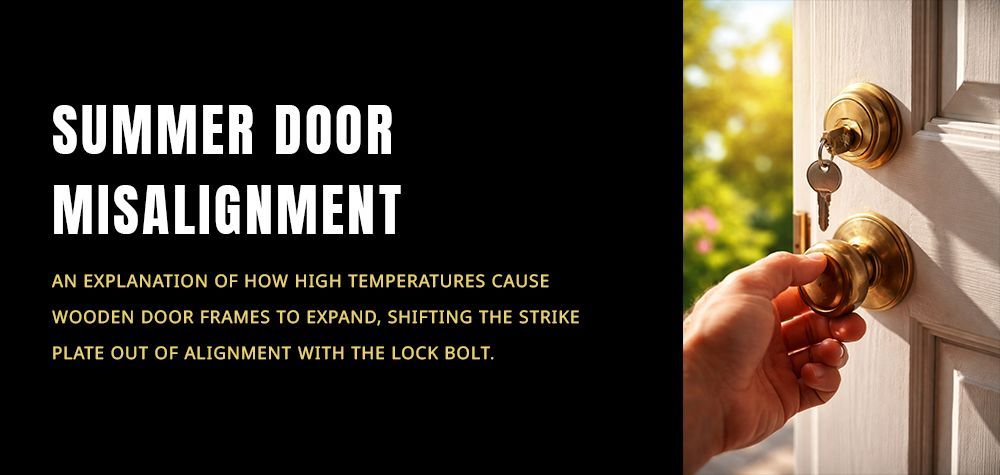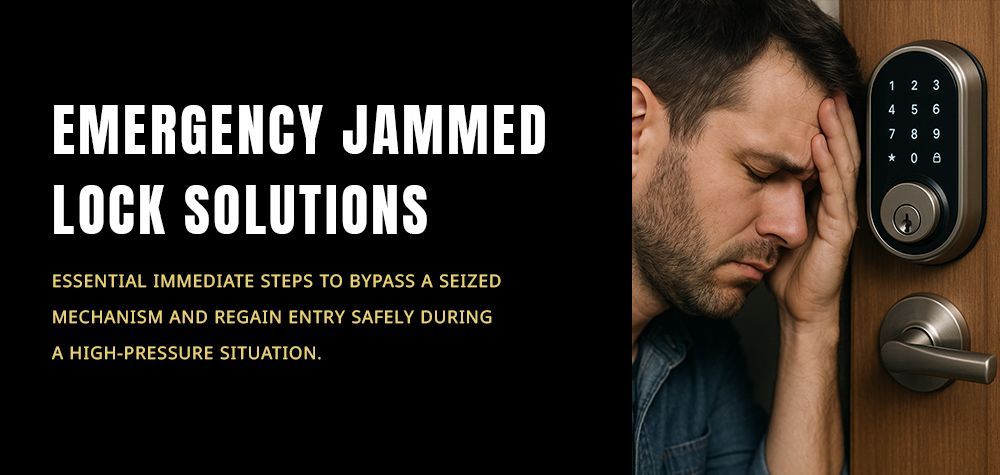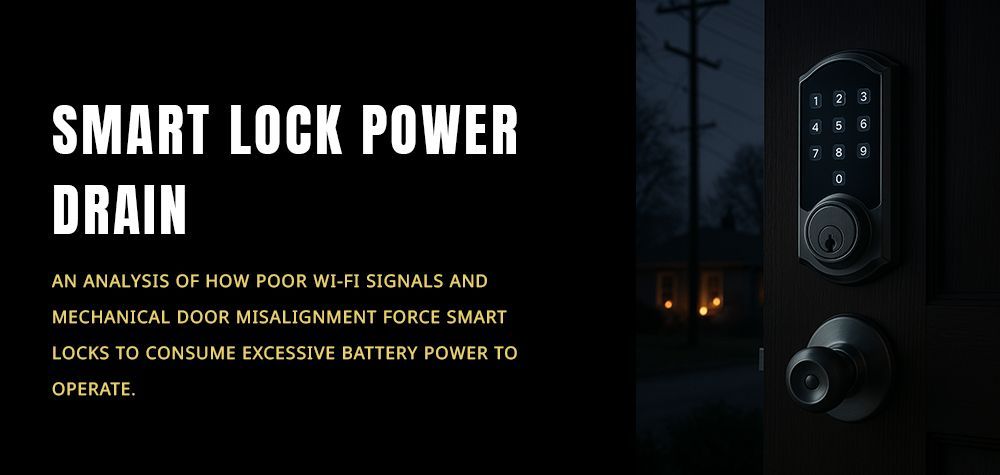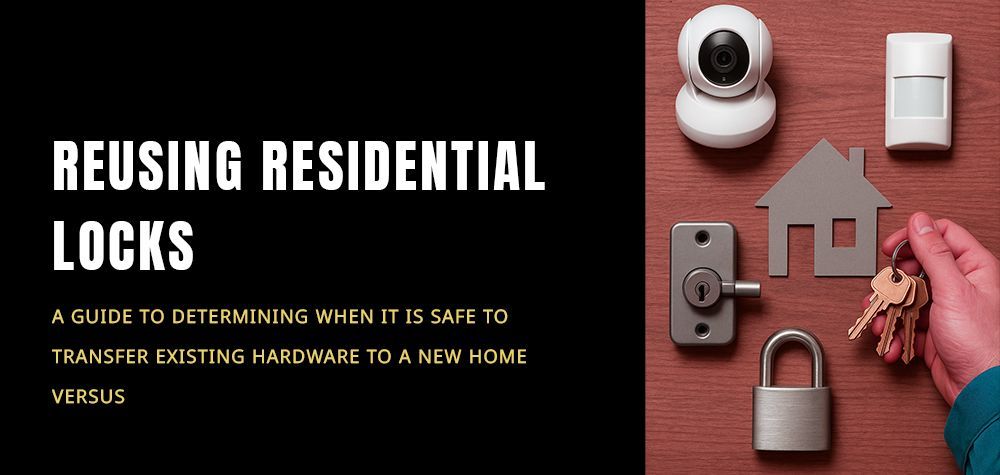Rekeying Vs. Replacing A Lock: Everything you need to know
Since our safety and that of our loved ones is our top priority, giving quality attention to the locks on our doors is very important. So whether you’ve lived in your current apartment for many years or you’ve just moved into a new home, replacing your locks is always a great idea. But what about rekeying them? What’s the difference anyway?
What does replacing a lock mean?
Replacing a lock is simply changing an existing lock with a new one by using a new lockset on the same door. It may be due to reasons such as: Having old, faulty locks; losing your keys; moving into a new home, etc.
This is the most popular choice among homeowners, business owners, etc. In fact, many people don’t know that there are other options available regarding lock problems.
What does rekeying a lock mean?
Rekeying of locks, on the other hand, is quite different. Firstly, locks contain ‘tumblers’ or ‘key pins’ inside them that correspond with a certain key.
When rekeying a lock, a locksmith opens up the existing lock and replaces the key pins inside with new ones, such that the current key can no longer work on that lock.
The lock stays in place but a new set of keys will be used to open it.
Most people are not aware of this option, hence, the reason why the lock replacement option is often patronized.
When is the best time to replace a lock?
The best time to replace a lock is when:
- You want to upgrade the entire security system of your locks. With the rise in the rate of burglary incidences, this could be seen as a wise decision to make e.g upgrading your locks to a key card or other digital options.
- The existing locks are old, malfunctioning, or worn out. Getting a malfunctioning lock rekeyed makes no sense. It’s best to have them replaced with new ones that work well.
- They were tampered with during a burglary incident or an attempted one.
- You want to give your locks an aesthetically pleasing look that complements your property. As simple as it sounds, changing your locks could give your doors the facelift that you desire!
When is the best time to rekey a lock?
The best time to rekey a lock is when:
- You lost your keys or they were stolen. In order to get a new set of keys for your locks without changing them entirely, you’ll have to rekey them.
- You moved into a new home. When you move into a new home, you are unsure of other people that might have copies of your keys. It is safer to rekey your locks in order to avoid unwanted visitors.’
- You prefer to keep a master key. Some people prefer to use a single key for more than one lock. The locksmith can rekey the different locks to correspond with a single key. This is possible if the locks are of the same brand.
What are the benefits of lock replacement vs. rekeying?
In order to arrive at a decision on whether or not to replace or rekey your locks, you have to know the benefit of each option.
Benefits of lock replacement
You feel safer
Lock replacement is best recommended when the existing locks are malfunctioning or worn out. In this situation, rekeying your lock might not do the job of ensuring your safety.
There’s also that confidence that comes with having newly installed locks. You’re almost sure about your safety because they are brand new.
Customization
You get to change your locks to look a certain way that appeals to your taste and matches your style.
Benefits of lock rekeying
Affordable and easy
Rekeying your lock is a much easier and more affordable way to secure your home. Your existing lock set is used and you only end up losing a key, which makes it cheaper.
But this solution depends on the situation involved. It will be unnecessary to replace a malfunctioning lock. Rekeying should be done in the case of lost or stolen keys etc.
Also, in the process of rekeying a lock, the locksmith can inspect the lock’s condition, confirm if it was properly installed, and correct an issue if any is found. This serves as a form of maintenance which is only a benefit of lock rekeying.
What is your budget for lock replacement and rekeying?
Lock replacement usually results in a much higher cost compared to lock rekeying. This is because it requires getting a new lockset or hardware, depending on the nature of the lock.
So, if you only lost your keys or they got stolen, why spend more when you can have your locks rekeyed?
Should you replace or rekey your locks by yourself?
Yes — if you’re a professional locksmith.
Locks serve as our first line of defense against burglars. They should be treated with additional care and attention. As a home or business owner, you would care a lot about the safety of your family or customers.
It is best to allow your lock replacements or rekeying to be done by professionals in order to ensure an excellent job. You might be saving yourself some money by doing it yourself but a poorly done job could easily jeopardize your safety and put you at risk of burglary attacks or unwanted visitors.
Why hire a professional locksmith?
There are many reasons why you should opt for a professional locksmith. Some of them are:
- A professional locksmith is highly skilled. They are trained to work with all kinds of locking mechanisms.
- They understand that you can get confused about the right decision to make, regarding the best lock for your property. They help you make the best, budget-friendly choice to suit your needs.
- They stay up-to-date with the latest lock technologies and techniques.
- They have professional tools they use to carry out the job quickly and efficiently.
- They have clear prices and quotes, with an option that’ll suit your budget.
- They provide the best services because they care about your feedback.
Why Brothers Locksmith?
At Brothers Locksmith, our locksmiths are master locksmiths with many years of experience. We understand that different customers have different needs; that is why we are up-to-date with the latest kinds of locks available to suit them.
Our team of professionals also offer advice on whether you need to simply rekey your locks or replace them. Expert key cutting services are available too.
In addition, we offer repair and maintenance services for when the locks develop faults or start wearing out.
Call Us Any Time!





